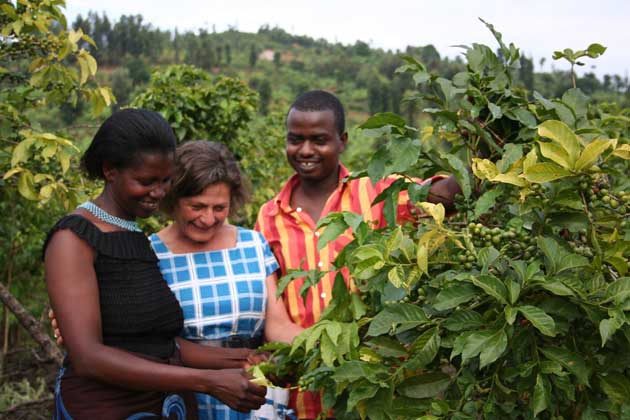Fairtrade, ethical eating, and why the choice between buying local and global is a distraction
As Fairtrade fortnight begins, what does good food actually mean?

Spot the contradiction. Today, a conscientious, ethical consumer might celebrate the start of Fairtrade Fortnight by walking into a local, independent grocery store in the South-west of England and filling his basket with honey, herbs, chocolate, dried apricots, bananas, even wine from the developing world. He might then go to the till, walking past innumerable signs boasting of how much of the shop’s stock is sourced locally, and pay in a local currency, the Bristol Pound, which uses the slogan “Our city. Our money”.
Injustice
To say there is a tension here is to put it mildly. Yet both Fairtrade and the new localism can be reconciled as two parts of the solution to the same problem: the injustice and unfairness of the current market economy.
Take Fairtrade first. It addresses the problems caused by what Harriet Lamb, chief executive of Fairtrade International, calls the “hourglass economy”. With coffee, for example, about 25 million smallholders worldwide produce 80 per cent of the world’s coffee, which ends up being drunk by millions of consumers.
But between producer and consumer are just a handful of middlemen, often using their market dominance to squeeze producers. Forty per cent of the global coffee market is in the hands of four companies, and 60 per cent of the retail trade is captured by five global brands.
Fairtrade restores an equitable link between producer groups – usually working together in co-operatives – and consumers, reducing the proportion creamed off by third parties. It gives producers in the developing world a better deal, until world trade rules are reformed to make such individual efforts unnecessary.
Buying local can be another way to promote equitable relationships between consumers, retailers and producers. As the Bristol Pound campaign puts it, “With sterling, much of the wealth spent in the city is lost to big international business, related management structures, remote shareholders and the boom-bust of the financial banking system”.
Who is most deserving?
So the key issue is not whether money stays locally or moves internationally, it’s that a fair share of it goes to the farmers, workers and producers who make the things we trade. Advocates of localism often ignore or miss this point. The Bristol Pound campaign, for example, boasts that it “helps wealth created in Bristol to stay here.”
But why should money in one of the wealthier areas of the world remain there, rather than go to those who need it more?
Fairtrade Fortnight should serve as a reminder that resisting the most egregious excesses of the market economy does not require a choice between trading locally or globally. We should support good, local independent businesses but we also need what Carlos Petrini, the founder of Slow Food, calls “virtuous globalisation”.
Progressives need to retain and refresh their internationalist aspirations so that the ethos of “go local” does not become a selfish parochial dogma.

Join our commenting forum
Join thought-provoking conversations, follow other Independent readers and see their replies